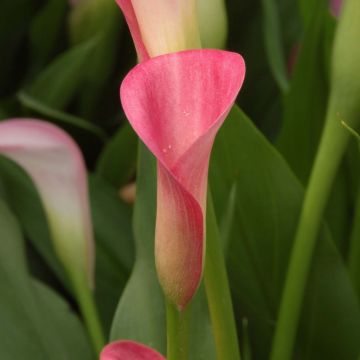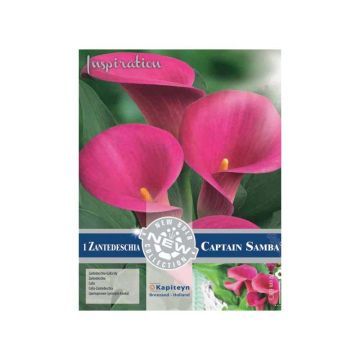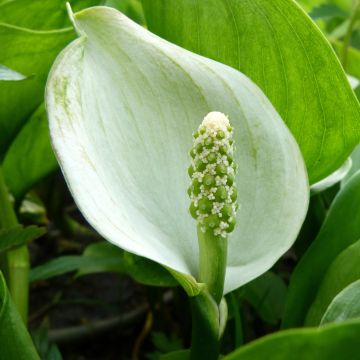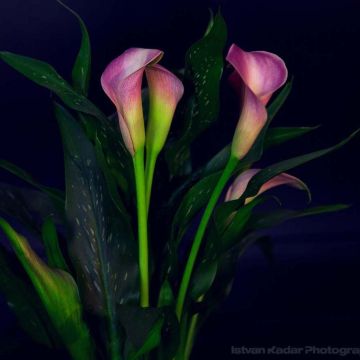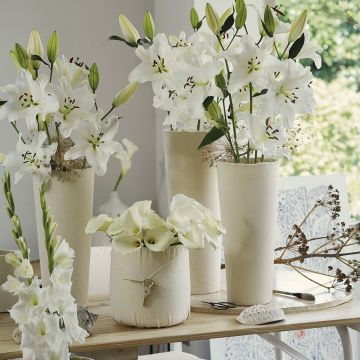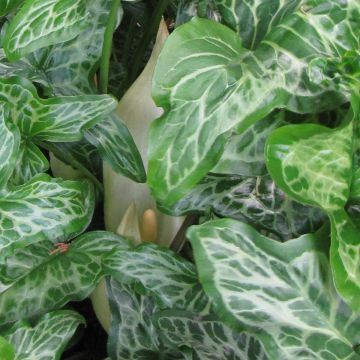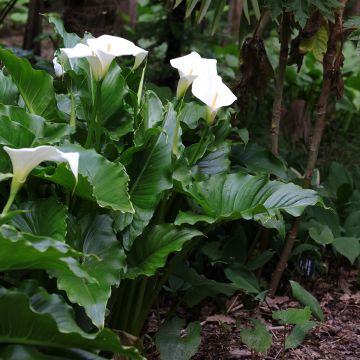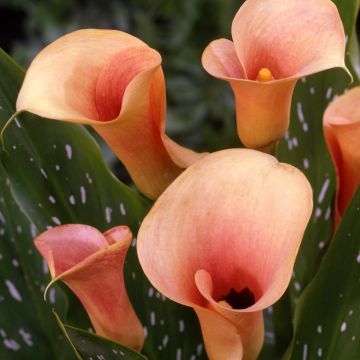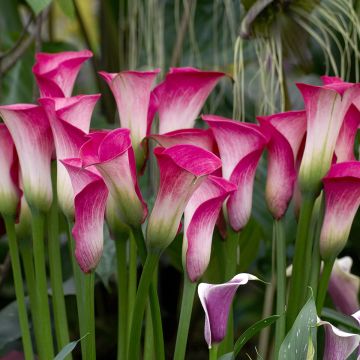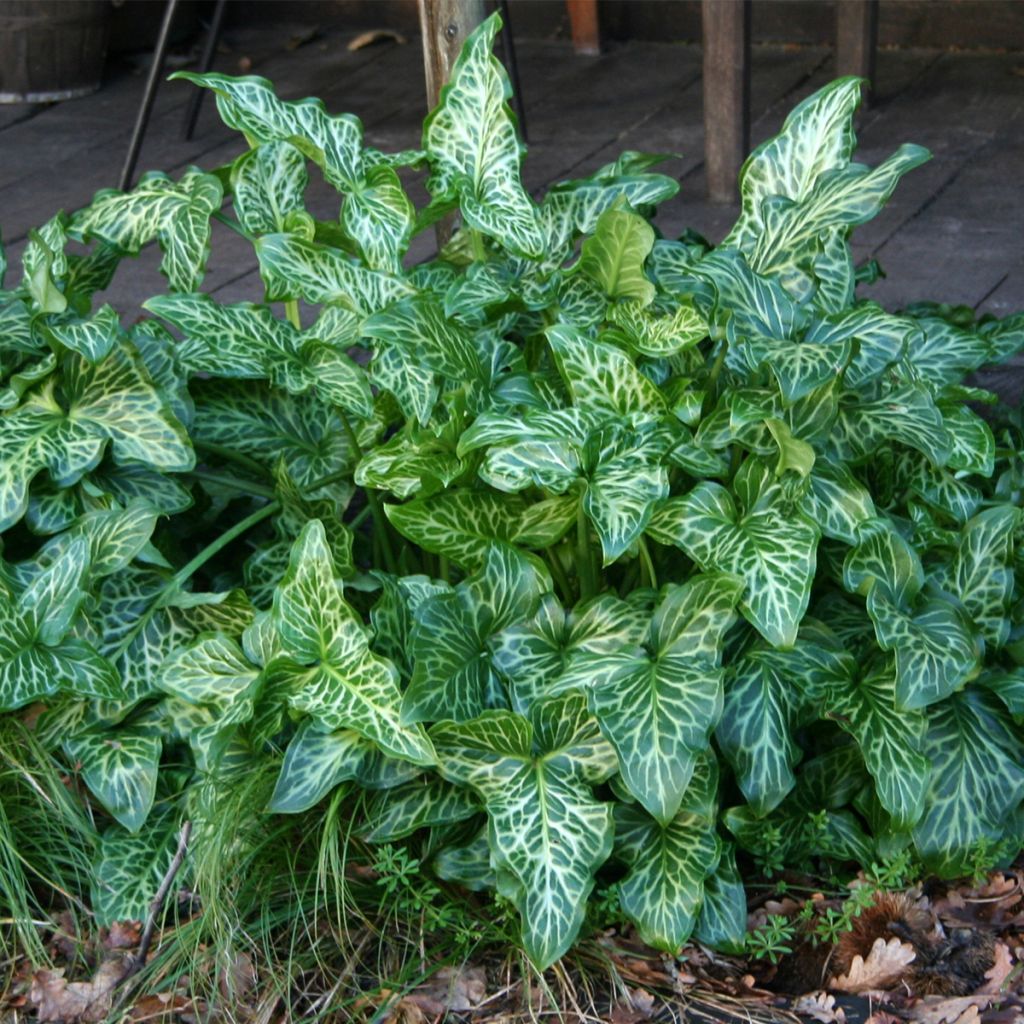

Arum italicum - Gouet d'Italie
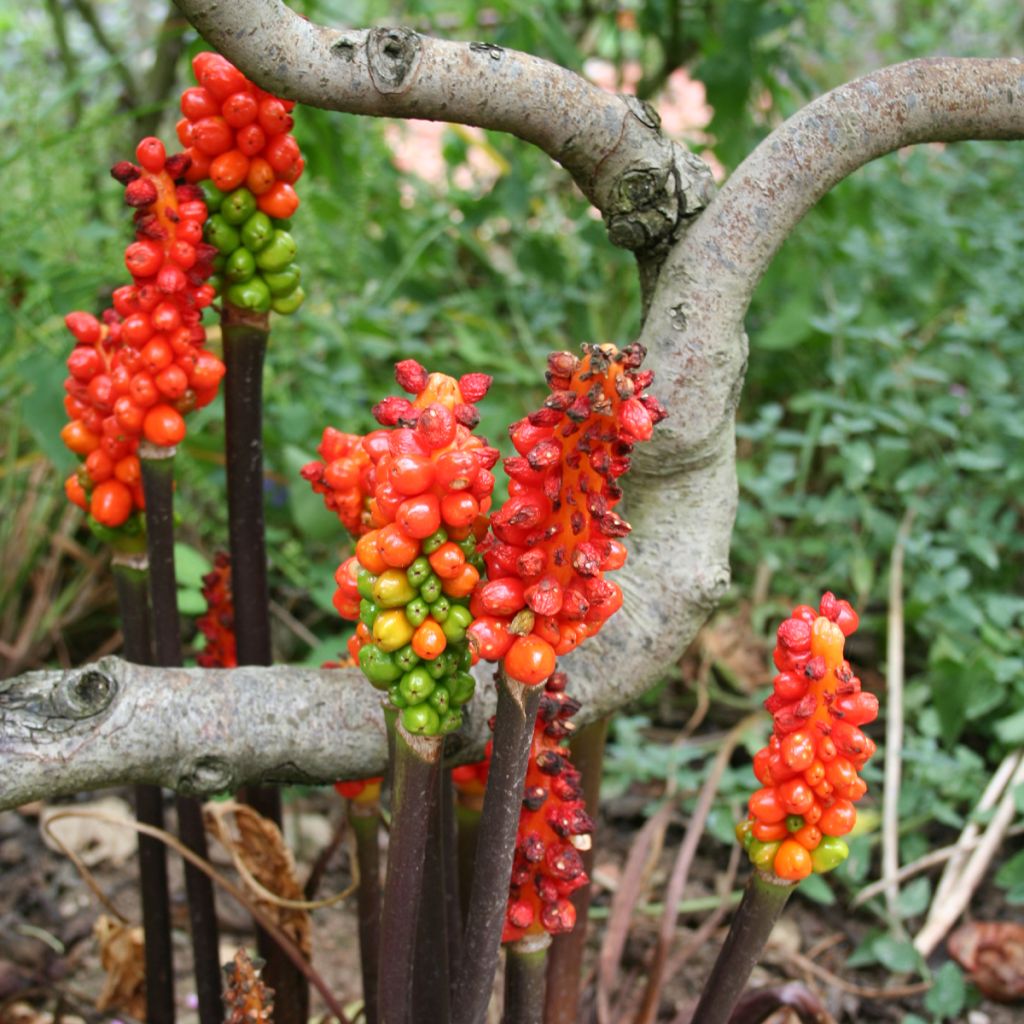

Arum italicum - Gouet d'Italie
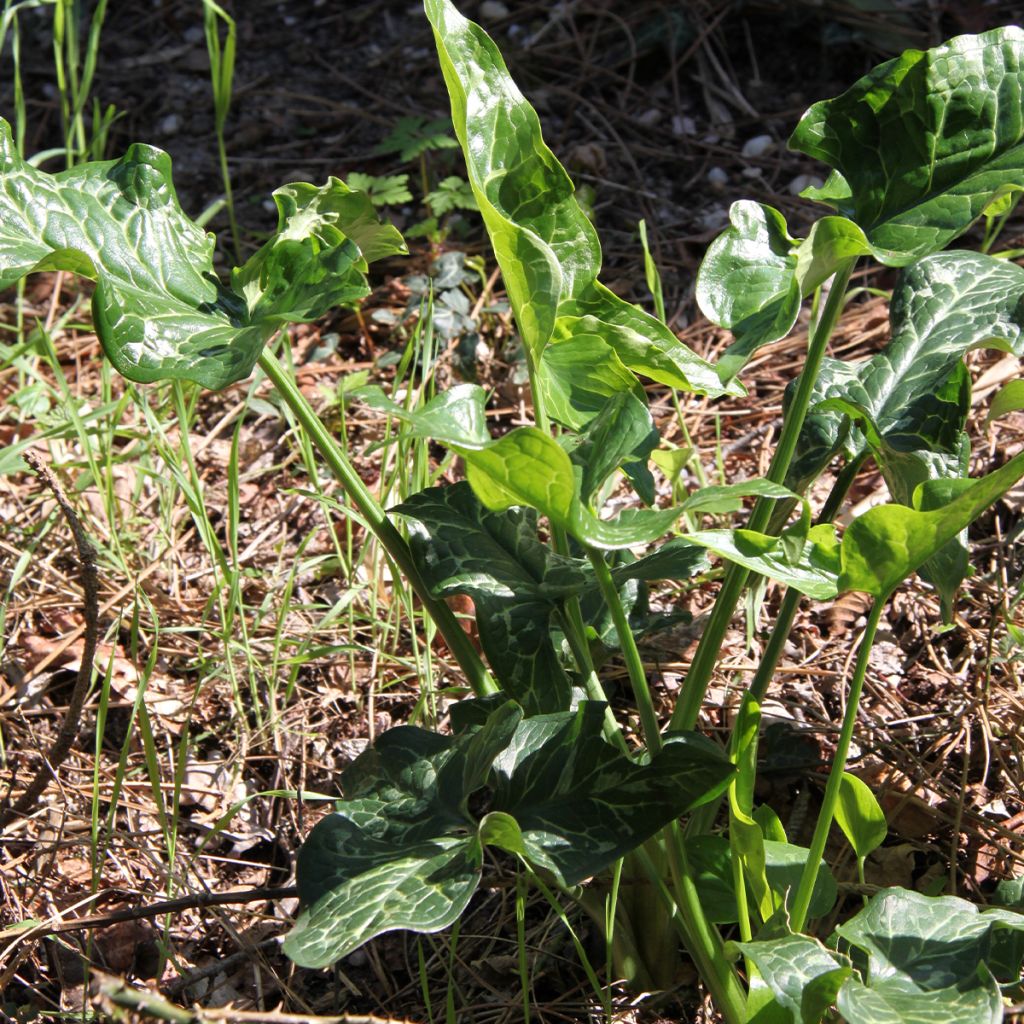

Arum italicum - Gouet d'Italie
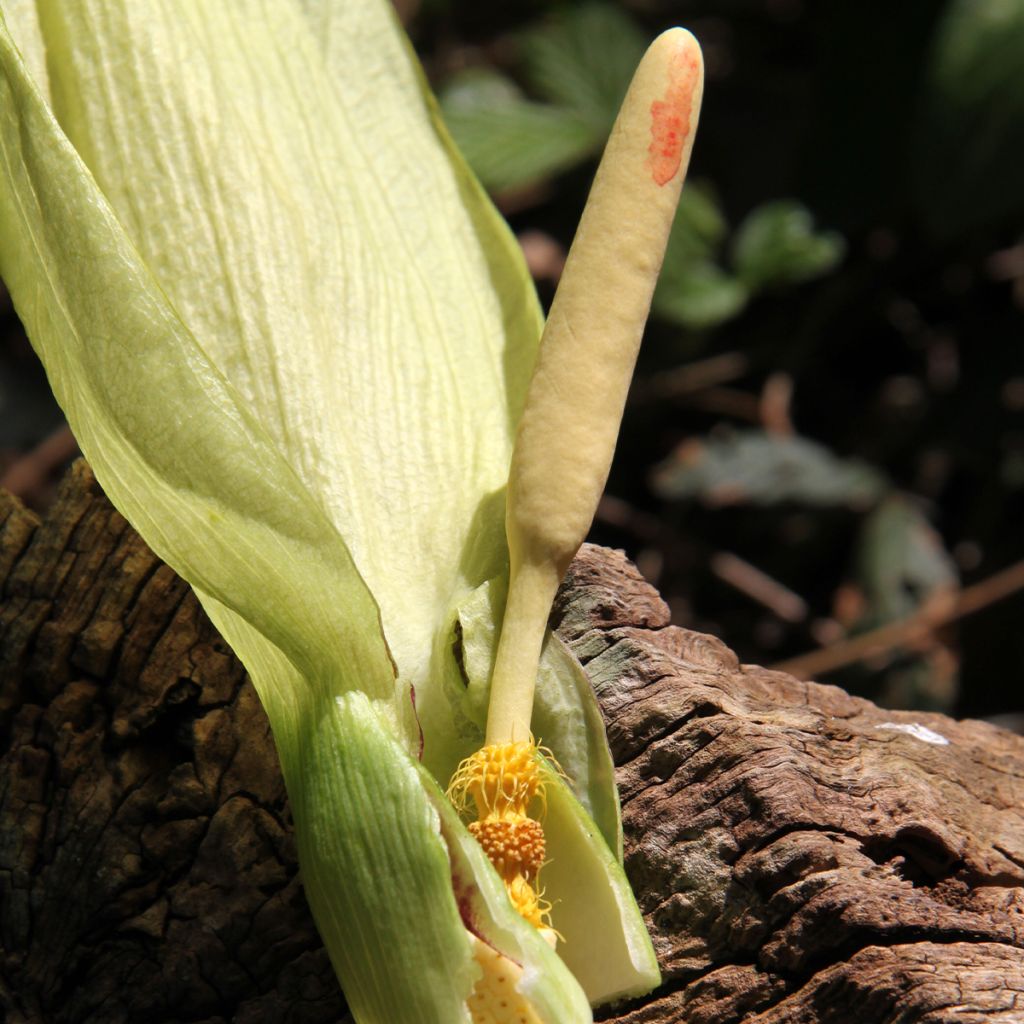

Arum italicum - Gouet d'Italie
Arum italicum
Arum italicum
Italian Arum, Italian Lords-and-Ladies
This item cannot be shipped to the selected country
Delivery charge from €5.90
Delivery charge from €5.90
More information
Schedule delivery date,
and select date in basket
This plant carries a 12 months recovery warranty
More information
We guarantee the quality of our plants for a full growing cycle, and will replace at our expense any plant that fails to recover under normal climatic and planting conditions.
From €5.90 for pickup delivery and €6.90 for home delivery
Express home delivery from €8.90.
From €5.90 for pickup delivery and €6.90 for home delivery
Express home delivery from €8.90.
Does this plant fit my garden?
Set up your Plantfit profile →
Description
The Arum italicum, also known as Italian Arum, Italian False Arum or Cuckoo Pint, is a small wild plant related to Arums that is sometimes found under large trees in old gardens where birds have sown it. Its foliage, with its discreet elegance, more or less veined and marbled, is decorative in autumn and winter. Its cone-shaped, upright yellowish flowers are original without being spectacular, but they are followed by the formation of brilliantly coloured red-orange fruits. Native to southern Europe and North Africa, this shade-loving perennial is perfectly adapted to very dry summers. It can be used to dress shaded areas of the garden.
Arum italicum belongs to the Araceae family. It is a stemless herbaceous plant, perennial by its tuberous roots, deciduous in summer. This species is native to France, where it is found throughout the Midi region, in the west and in the centre of the country. The Italian arum, resistant to cold, is present throughout the Mediterranean region as well as in the United Kingdom, Switzerland, Russia, and Ukraine. Where it is happy, the Italian Arum can be prolific and sometimes invasive.
The foliage emerges from the ground in autumn, reaching about 30 cm (12in) in height. It consists of several arrow-shaped leaves, measuring 9 to 40 cm (4 to 16in) in length and 2 to 29 cm (1 to 11in) in width. The leaf lamina is shiny, dark green, usually with light-coloured areas along the veins, ranging from white to cream and yellow-green. Flowering takes place in March-April. The flowering, typical of Araceae, consists of a stalk supporting a white-greenish to yellowish cone-shaped spathe, which in turn surrounds a column-shaped spadix. The whole structure measures about 35 cm (14in) in height. Pollination is carried out by flies and some beetles. The fruits are round and shiny berries, orange-red in colour, tightly packed together. The foliage dries up after flowering, at the end of spring, while the plant goes into dormancy. In cold climates, new leaves also emerge from the ground in autumn, disappear in winter, and then re-emerge in early spring.
Arum italicum is a very easy plant to grow in our not overly cold regions. It grows without care and adds a touch of elegance and originality along a pathway or at the base of flowering bushes. It pairs beautifully with other shade-loving perennials. At the edge of a border, it blends nicely with Hellebores, Algerian Iris, and small bulbs like crocuses, botanical narcissus, or Naples cyclamens.
Caution: Italian Arum is a toxic plant if ingested in any part.
Report an error about the product description
Arum italicum in pictures
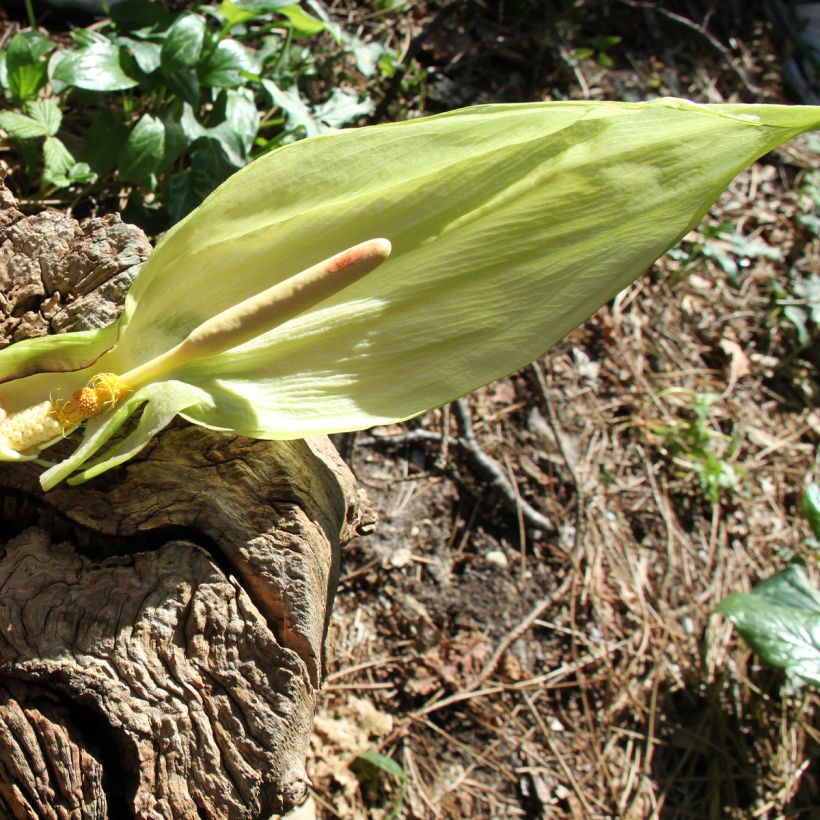

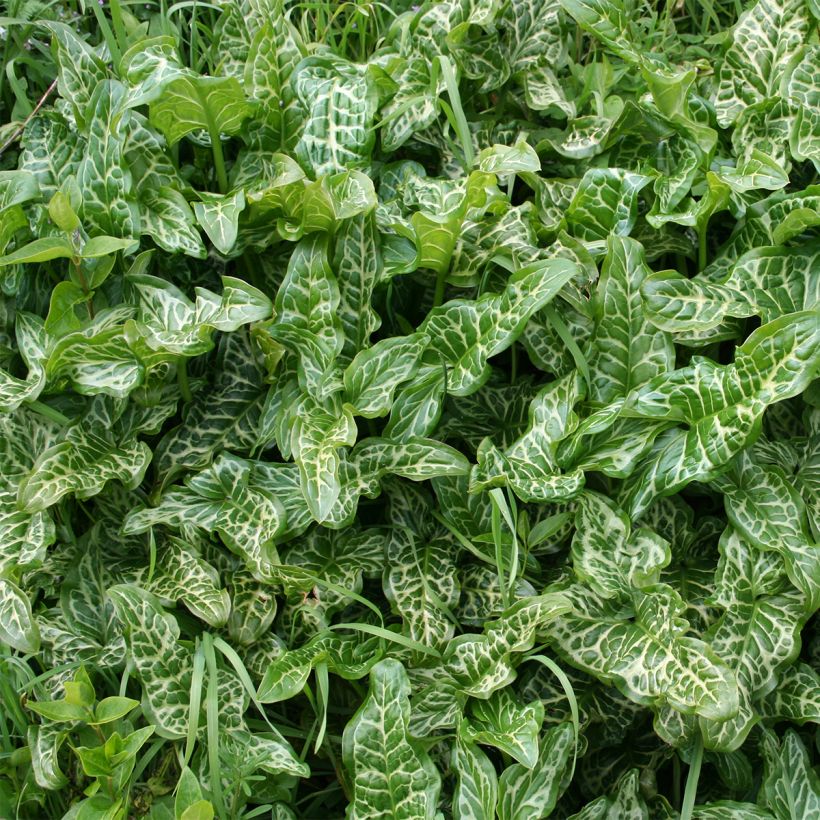

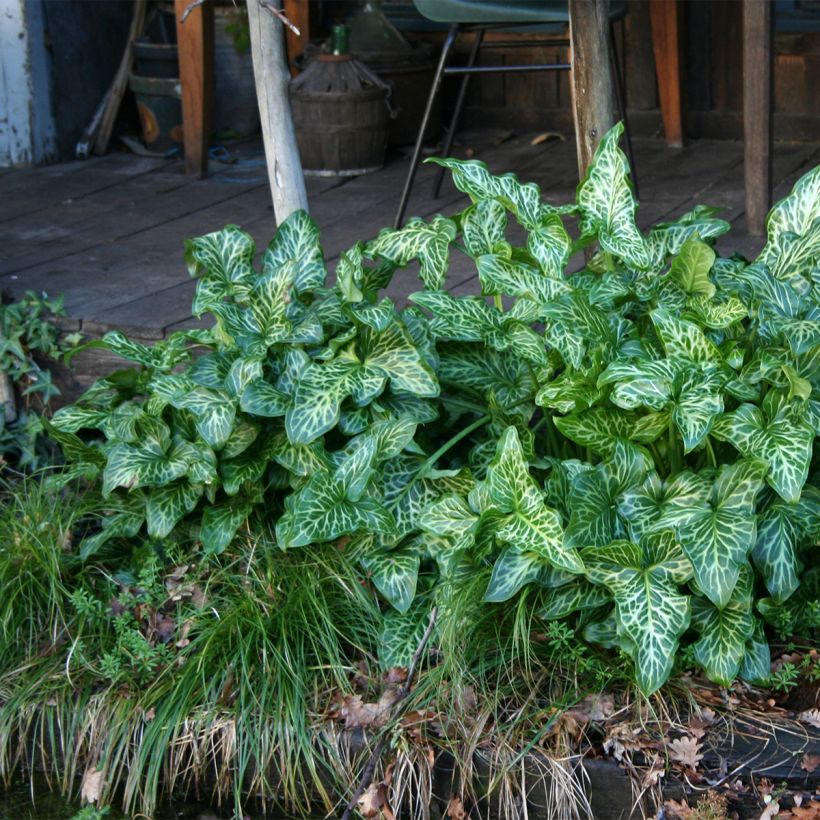

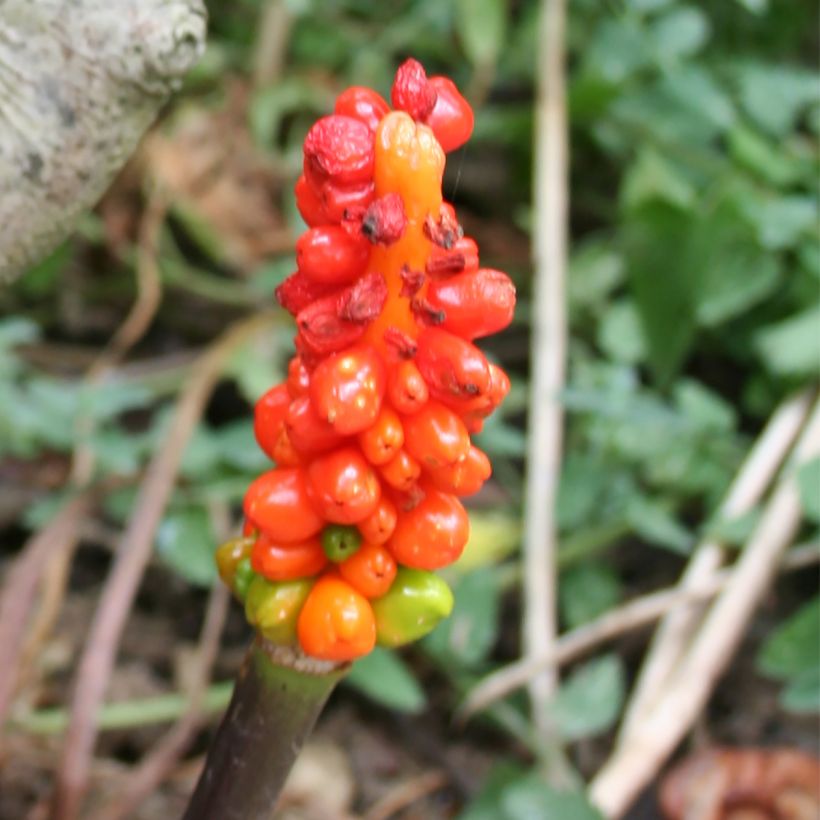

Flowering
Foliage
Plant habit
Botanical data
Arum
italicum
Araceae
Italian Arum, Italian Lords-and-Ladies
Southern Europe
Other Arums
Planting and care
Plant the Arum italicum in partial shade or not too dense shade, in soil preferably with a clayey and humus bearing, rich, even limestone. Summer drought, even severe, is perfectly tolerated as summer corresponds to the plant's rest period. The hardiness of the Italian arum is around -12°C without winter protection. In cold regions, it is advisable to protect the base with a layer of dead leaves or straw. This plant requires no other maintenance, it has no specific diseases or parasites.
Planting period
Intended location
Care
-
, onOrder confirmed
Reply from on Promesse de fleurs
Haven't found what you were looking for?
Hardiness is the lowest winter temperature a plant can endure without suffering serious damage or even dying. However, hardiness is affected by location (a sheltered area, such as a patio), protection (winter cover) and soil type (hardiness is improved by well-drained soil).

Photo Sharing Terms & Conditions
In order to encourage gardeners to interact and share their experiences, Promesse de fleurs offers various media enabling content to be uploaded onto its Site - in particular via the ‘Photo sharing’ module.
The User agrees to refrain from:
- Posting any content that is illegal, prejudicial, insulting, racist, inciteful to hatred, revisionist, contrary to public decency, that infringes on privacy or on the privacy rights of third parties, in particular the publicity rights of persons and goods, intellectual property rights, or the right to privacy.
- Submitting content on behalf of a third party;
- Impersonate the identity of a third party and/or publish any personal information about a third party;
In general, the User undertakes to refrain from any unethical behaviour.
All Content (in particular text, comments, files, images, photos, videos, creative works, etc.), which may be subject to property or intellectual property rights, image or other private rights, shall remain the property of the User, subject to the limited rights granted by the terms of the licence granted by Promesse de fleurs as stated below. Users are at liberty to publish or not to publish such Content on the Site, notably via the ‘Photo Sharing’ facility, and accept that this Content shall be made public and freely accessible, notably on the Internet.
Users further acknowledge, undertake to have ,and guarantee that they hold all necessary rights and permissions to publish such material on the Site, in particular with regard to the legislation in force pertaining to any privacy, property, intellectual property, image, or contractual rights, or rights of any other nature. By publishing such Content on the Site, Users acknowledge accepting full liability as publishers of the Content within the meaning of the law, and grant Promesse de fleurs, free of charge, an inclusive, worldwide licence for the said Content for the entire duration of its publication, including all reproduction, representation, up/downloading, displaying, performing, transmission, and storage rights.
Users also grant permission for their name to be linked to the Content and accept that this link may not always be made available.
By engaging in posting material, Users consent to their Content becoming automatically accessible on the Internet, in particular on other sites and/or blogs and/or web pages of the Promesse de fleurs site, including in particular social pages and the Promesse de fleurs catalogue.
Users may secure the removal of entrusted content free of charge by issuing a simple request via our contact form.
The flowering period indicated on our website applies to countries and regions located in USDA zone 8 (France, the United Kingdom, Ireland, the Netherlands, etc.)
It will vary according to where you live:
- In zones 9 to 10 (Italy, Spain, Greece, etc.), flowering will occur about 2 to 4 weeks earlier.
- In zones 6 to 7 (Germany, Poland, Slovenia, and lower mountainous regions), flowering will be delayed by 2 to 3 weeks.
- In zone 5 (Central Europe, Scandinavia), blooming will be delayed by 3 to 5 weeks.
In temperate climates, pruning of spring-flowering shrubs (forsythia, spireas, etc.) should be done just after flowering.
Pruning of summer-flowering shrubs (Indian Lilac, Perovskia, etc.) can be done in winter or spring.
In cold regions as well as with frost-sensitive plants, avoid pruning too early when severe frosts may still occur.
The planting period indicated on our website applies to countries and regions located in USDA zone 8 (France, United Kingdom, Ireland, Netherlands).
It will vary according to where you live:
- In Mediterranean zones (Marseille, Madrid, Milan, etc.), autumn and winter are the best planting periods.
- In continental zones (Strasbourg, Munich, Vienna, etc.), delay planting by 2 to 3 weeks in spring and bring it forward by 2 to 4 weeks in autumn.
- In mountainous regions (the Alps, Pyrenees, Carpathians, etc.), it is best to plant in late spring (May-June) or late summer (August-September).
The harvesting period indicated on our website applies to countries and regions in USDA zone 8 (France, England, Ireland, the Netherlands).
In colder areas (Scandinavia, Poland, Austria...) fruit and vegetable harvests are likely to be delayed by 3-4 weeks.
In warmer areas (Italy, Spain, Greece, etc.), harvesting will probably take place earlier, depending on weather conditions.
The sowing periods indicated on our website apply to countries and regions within USDA Zone 8 (France, UK, Ireland, Netherlands).
In colder areas (Scandinavia, Poland, Austria...), delay any outdoor sowing by 3-4 weeks, or sow under glass.
In warmer climes (Italy, Spain, Greece, etc.), bring outdoor sowing forward by a few weeks.

































